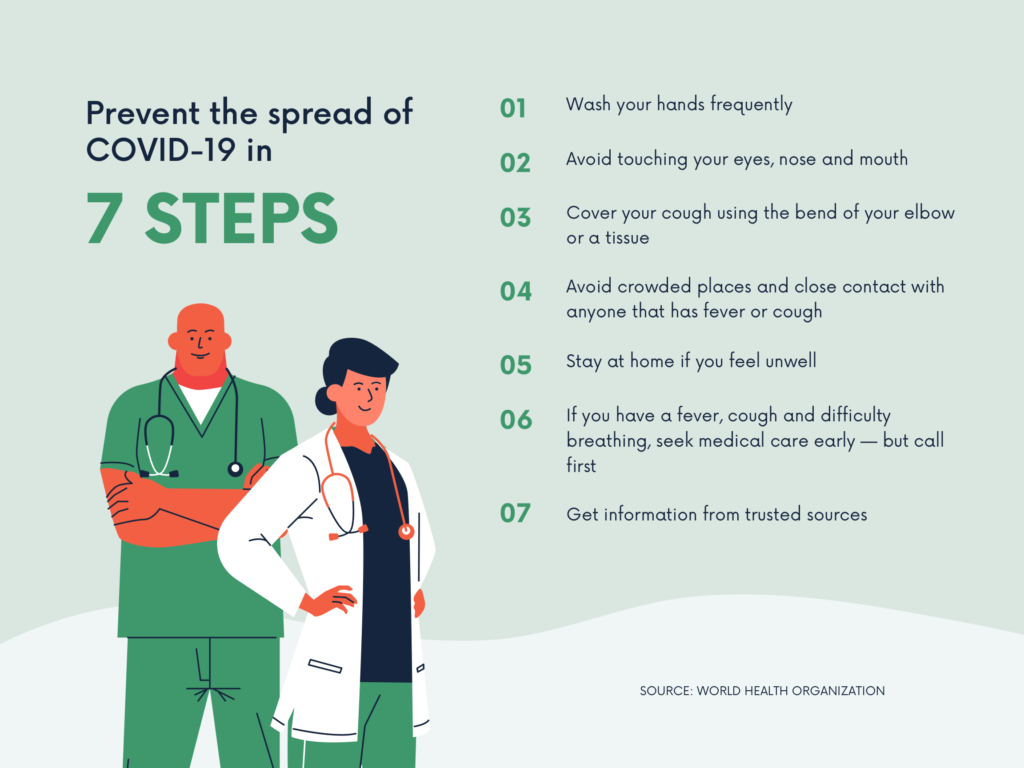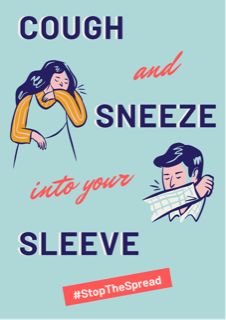Cough: Causes and Prevention
Once upon a Cough: Causes and Prevention
Once upon a time…I found myself coughing. This was approximately four weeks ago. It started as a mild, occasional cough which waxed and waned before turning into an irritating, frequent but dry cough which seemed to interrupt my every conversation. I had to refrain from speaking on several occasions to avoid receiving funny and questioning looks from neighbours and colleagues.
I have been practising self-care consistently so I cast my mind back to the possibility of any recent contact with a coughing person. I asked myself questions such as, “Am I sneezing?…checked”, “Any loss of taste or smell?…checked”, “Any fever, fatigue or body aches?…checked-checked. Thankfully the answers were in the negative. I ended up taking home remedies such as lemon in warm water and my vitamins as well. I also sought medical advice. I am much better now. How about you? Have you coughed recently?

Why do I cough?
When you cough or when you hear a cough, what is the first thought that comes to your mind? During this COVID-19 season, you would probably think of a covid-induced cough. However, there are so many other reasons why we cough.
A cough in itself is a self-protective mechanism designed by nature to clear any irritation or hazard in the throat or airway. It is a reflex action which could be intentional or involuntary and comes up as a result of a signal from the brain to your nerve cells to clear the irritant. Consider a piece of meat going the wrong way as you eat and not being able to cough it out.
Here are some of the reasons why we cough:
- Air pollution: Our environment is characterised by a lot of fumes from engines, factories and refineries as well as bush fires. These airway irritants can keep us from breathing well and predispose exposed individuals to diseases of the heart, lungs and blood vessels.
- Allergens: A certain number of us are more sensitive to allergens such as pollen, grass, mould, dust and sometimes cold air. Insecticides and cosmetics can induce an allergic or asthmatic response in some individuals. A cough is the body’s attempt to get rid of the unwelcome allergen.
- Indoor pollution: Irritating coughs could be generated by inhaling fumes from frying or burning food.
- Respiratory Tract Infections: The foremost cause of infectious coughs are viruses. Over 200 viruses can lead to the common cold, the most common examples being rhinoviruses and sometimes coronaviruses. A cough could result from a more severe infection which involves the lung tissue, pneumonia. Cough could also result from life-threatening infections such as SARS or MERS.
- Pulmonary tuberculosis: Popularly known as TB, this leads to a chronic cough, worse at night, associated with bloodstained phlegm and weight loss.
- Whooping cough: Also known as pertussis, this cough results from a vaccine-preventable childhood illness in which the cough sounds like a whoop.
- Post-viral coughs: This is a reactive cough which tends to come up after recovering from a viral respiratory infection. It could take up to two weeks to clear completely even after the original cough has subsided.
- Chronic lung diseases: These include bronchitis, obstructive lung diseases, farmers lung diseases and lung cancer, just to mention a few.
When do I seek medical advice if I am coughing?
- A cough lasting more than two weeks should be investigated by a medical professional.
- Any cough associated with blood-stained phlegm.
- A cough that results in breathlessness or difficulty breathing should also be checked.
Is there any sure way to prevent a cough?
Preventing the unhealthy causes of cough would be a better way to put it. If you stop a cough reflex, this could lead to more damage.
This is because the cough reflex helps to clear out debris, mucus and foreign materials in the throat or airway. The loss of the cough reflex can make an individual drown in his oral or airway secretions. However, there are simple ways to reduce your risk of developing a cough.
- Reduce your exposure to irritants and allergens: You can achieve this by placing an extractor to suck out fumes in your kitchen while cooking. If possible, make use of a gas or an electric burner for your cooking, rather than a paraffin stove or firewood. If you are an asthmatic patient or you have allergies, always protect yourself with a handkerchief or face-mask when you go out.
- Get vaccinated. All children are expected to receive the anti-TB vaccine at the age of nine months to boost their immunity against the TB infection. Children under five, older persons above age 65 and immunocompromised persons, for example, diabetes patients and sickle cell patients are encouraged to take a vaccine which protects against severe pneumonia. Prevenar 13, a brand of pneumococcal vaccine protects against the 13 types of bacteria that lead to serious infections.
- Observe cough étiquette or respiratory hygiene. This refers to the actions you can take to ensure that you don’t spread an infective cough to people around you. This entails coughing or sneezing into your elbow or handkerchief, not spitting on the ground as well as hand hygiene.

- Avoid smoking. Active or passive (second-hand) smoking both predispose individuals to chronic obstructive lung disease and lung cancer. Tobacco use is linked to over 40 cancers and is a leading cause of death in the developed world. Quitting tobacco at any age can reduce the risk of lung cancer.
- Build your immunity. This is invariably the best way to protect oneself from falling prey to the unhealthy and debilitating causes of cough. This would include what I will call your health currency: a plant-based diet, restorative sleep, stress reduction, fostering healthy relationships as well as planned, regular physical activity (exercise).
In conclusion, cough is a reflex that protects you from various intruders that could either irritate or damage your airway. However, one of the best gifts you can give yourself this year is a conscious and consistent deposit of health currency into your health deposit box. It will build up your reserve and protect you against the acute, infectious and chronic, non-communicable or lifestyle-related diseases that result in cough.

Dr Ore is a Consultant Family Physician and Board-certified Lifestyle Medicine Physician.

4 Comments
Some coughs come only in the night,while there is no sign of it in daytime. Under which category does this cough belong, and what is the prevention and the cure?
Some allergic coughs are worse at night. Asthmatic coughs occur mostly at night. Then stomach (acid) reflux can cause cough at night as well. However its best to see your doctor to arrive at the proper diagnosis and treatment. Gastric reflux can be prevented by avoiding late night meals.
Thanks for the enlightenment. Please ma,may I know if all 60yrs and above are to be vaccinated or just the ones who are diabetic and sickle cell?
You are welcome. Yes, it is recommended for all older persons (elderly).
Comments are closed.